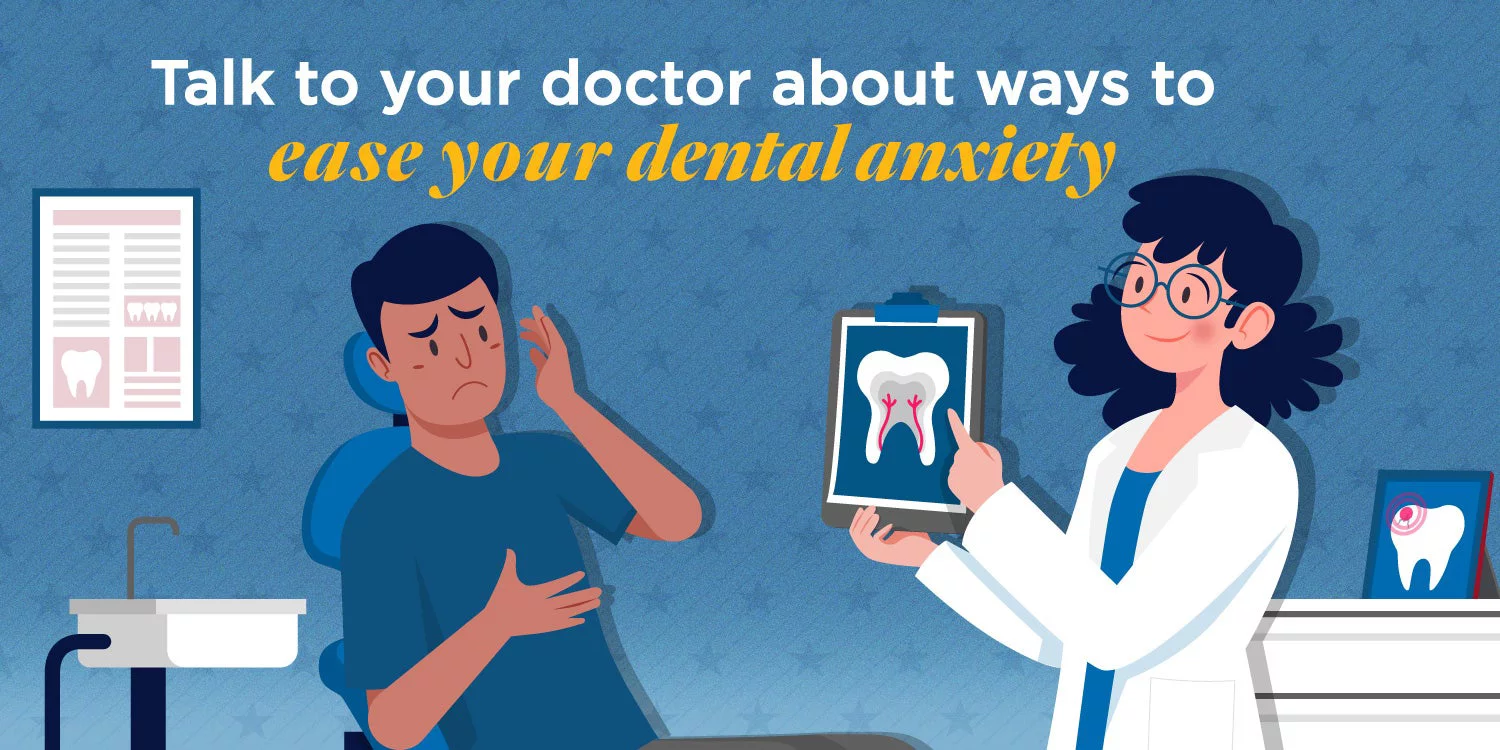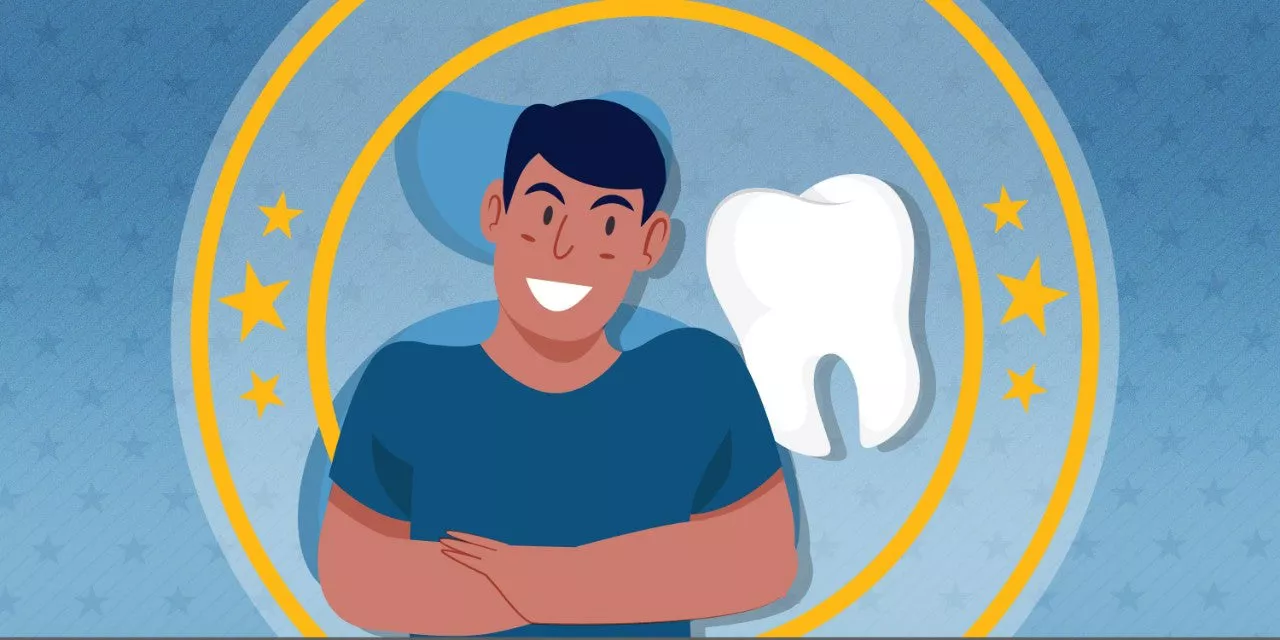Understanding the Importance of Post-Service Dental Care
Once you are discharged from the service, maintaining oral health is crucial to avoid negative consequences such as tooth decay or gum disease. Especially if you were deployed for long periods of time, your oral health may have suffered due to:
- Stress
- Lack of access to preventative dental care
- Fatigue from long working hours
- Developing habits like drinking energy drinks or smoking
- Males
- Older adults
- Smokers
- Diabetics
Good oral care, however, reduces the amount of inflammation in your body and lowers your risk of these conditions. With over two decades of supporting research, the Mouth-Body Connection shows that keeping up with your oral care is a crucial part of living a healthy life.

Overcoming Dental Care Fears, Anxiety, and PTSD
The need for regular dental care is crucial for all veterans, but especially those suffering from post-traumatic stress disorder (PTSD), who have a higher rate of oral and dental issues. Dental care and treatment fears are also ten times more prevalent in veterans with PTSD.
To ease your dental anxiety, a few tips to help you get the dental care you need are:
- Take a family member or friend with you
- Schedule your appointment on a day when you don’t have a full schedule
- Choose an appointment time earlier in the day so you do not have to worry about it all day
- Discuss your anxiety with your dentist prior to your appointment
- Bring headphones for calming music in the waiting room and during the exam
- Ask your dentist for sedation options that are appropriate for your situation
- Do not arrive at your appointment too early
If you feel like PTSD or other anxieties are making it impossible to function daily or even deter you from going to the dentist, resources like The Wounded Warrior Project can provide free mental health services to help you cope with your anxiety.
VA Dental Benefits: Your Support System
Unlike VA medical benefits, VA dental care benefits are quite rare. Only 4.5% of the veteran population qualifies for regular dental benefits through the VA. By understanding who qualifies for VA dental care, you can determine if you fall into that category. To qualify, you must fit into at least one of the following:
- Your disability must be 100% connected to military service
- You must have been a prisoner of war
- You must be compensated for a service-related dental disability, having a 100% disability rating, excluding temporary ratings
- Regular preventative exams
- X-rays
- Fillings or crowns
- Needed oral surgeries
If you do not qualify for regular dental benefits, you may be eligible for a one-time dental exam if you apply within 180 after you are discharged from the military following active duty.
VA Dental Clinics

Other Affordable Dental Care Options
VA Dental Insurance
You can apply for VA dental insurance at a reduced cost. While you have to pay for your premium and co-pays at your dental visits, you can get the dental care you need to keep your mouth healthy while not having as high of an out-of-pocket cost. While terms vary throughout the U.S., VA dental insurance covers services like:
- Emergency dental care
- Preventative care
- Restorative care
- Dental surgery
Low-cost Clinics or Dental Schools
Dental Discount Plan
You can find individual dental offices offering an in-house dental discount plan to get incredible discounts on the most common dental treatments. From preventative visits to restorative care like fillings and crowns, you can save a significant amount on each treatment. You can also use your discount plan with your VA dental insurance to pay for co-pays, deductibles, or other out-of-pocket costs.
Dental Payment Plan
If you need dental treatment, but the cost is more than you can afford, ask your dentist about a dental payment plan. This allows you to spread the cost of the procedure out over several months to make it more affordable for you.
Find a Dentist Near You
To find a dentist in your community that offers dental discount plans as well as payment options so you do not have to pay for dental care all at once, use Smile Generation's Find a Dentist tool. Smile Generation connects you with qualified, experienced dentists who will provide you with the caring dental health services you need as a veteran.
In addition, be sure to ask your trusted- Smile Generation dental office about Smile Generation's Serve Days. This special event includes over 900 dental offices around the U.S. that participate in a day of giving free dental care to veterans, as well as others who can not afford regular dental appointments.
Find your trusted, local dentist today!
Sources
- U.S. Department of Veterans Affairs. (2022, November 9). VA dental insurance program (VDIP). U.S. Department of Veterans Affairs. Retrieved from https://www.va.gov/health-care/about-va-health-benefits/dental-care/dental-insurance/
- U.S. Department of Veterans Affairs. (2022, October 12). VA dental care. U.S. Department of Veterans Affairs. Retrieved from https://www.va.gov/health-care/about-va-health-benefits/dental-care/
- U.S. Department of Veterans Affairs. (2023, October 11). Apply for VA healthcare. U.S. Department of Veterans Affairs. Retrieved from https://www.va.gov/health-care/apply/application/introduction
- Schindler, D. K., Lopez Mitnik, G. V., Soliván-Ortiz, A. M., Irwin, S. P., Boroumand, S., & Dye, B. A. (2021, January 30). Oral health status among adults with or without prior active duty service in the US Armed Forces: NHANES 2011-2014. National Institutes of Health. Retrieved from https://www.ncbi.nlm.nih.gov/pmc/articles/PMC10233489/
- Wounded Warrior Project. (2023, October 11). Mental health services for veterans. Wounded Warrior Project. Retrieved from https://www.woundedwarriorproject.org/programs/mental-wellness
- Tagger-Green, N., Nemcovsky, C., Fridenberg, N., Green, O., Chaushu, L., & Kolerman, R. (2022, June 6). Oral and dental considerations of combat-induced post traumatic stress disorder (PTSD): A cross-sectional study. National Institutes of Health. Retrieved from https://www.ncbi.nlm.nih.gov/pmc/articles/PMC9181801/
Smile Generation blog articles are reviewed by a licensed dental professional before publishing. However, we present this information for educational purposes only with the intent to promote readers’ understanding of oral health and oral healthcare treatment options and technology. We do not intend for our blog content to substitute for professional dental care and clinical advice, diagnosis, or treatment planning provided by a licensed dental professional. Smile Generation always recommends seeking the advice of a dentist, physician, or other licensed healthcare professional for a dental or medical condition or treatment.








